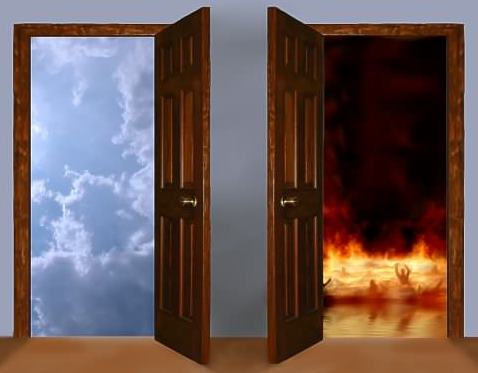My name is Gary M. Votour. I have lived in Columbia, SC for the last six years. Although I am disabled, I volunteer my time as a personal health care advocate. As a Christian, I follow the teachings of my savior, Jesus Christ. I follow my calling and help my fellow men and women when they are dealing with complex medical issues by helping them prepare for life-threatening treatments. I assist them in getting second opinions, understanding informed consent, assigning health care proxies and preparing living wills.
That is not what I am writing to you about today. In 2006, my first wife and I lived in Massachusetts. She was diagnosed with a rare form of bone cancer, and a high-risk surgery to arrest its development went horribly wrong. Ischemic strokes during the surgeries left her almost completely paralyzed and in constant pain for the rest of her life. After 6 months in 3 different hospitals, we were fortunate enough to return to our rural home where she struggled to continue living in spite of what happened. After 30 months of ICU level home care, she gave up and stopped eating and drinking. She died in 2008.
Throughout the hospitalization and home care period, I never left her side. Her strength and determination inspired me to dedicate my life to helping others. After she died, I returned to school, obtained a Masters Degree in Health Care Administration and became the advocate for others I am today.
When her surgery went badly, her employer terminated her. For eighteen months, the Massachusetts Medicaid program, MassHealth, reimbursed us for the COBRA payments needed to keep her private insurance. MassHealth also paid for virtually everything not covered by her HMO. This included visiting nurse visits several times a week, home care supplies, physical therapy, and most importantly funding for the staff we needed at home to help me care for her. A special program funded by MassHealth paid for 90 hours of staff weekly, that we could hire locally and train. Without MassHealth, her care at home would not have been possible.
After the 18 month COBRA period ended, her HMO would not insure her. Her “pre-existing” condition gave them the right to deny her coverage. Medicare became her primary insurer, and MassHealth continued to fund what they did not cover. We were fortunate enough to be in the only state in the country that had adopted such a progressive Medicaid program. This was because our state legislation had passed what was known as Romneycare, named for our Republican governor Mitt Romney. That is the program, as I am sure you know, that the Affordable Care Act’s (ACA) Medicaid expansions were modeled after in 2009 for the entire nation.
If we lived in South Carolina today, and this happened to us, the outcome for my wife would have been very different. Because this state has not expanded and strengthened their Medicaid program under the ACA, caring for my wife at home would have been near impossible. The best care we could have hoped for here would result in her being warehoused and left to die in a nursing home, with a standard of care far less than what we were able to provide for her at home. Even that meager care for her likely shortened life would most certainly have meant foreclosure on our home and bankruptcy for me before she would have been eligible for any Medicaid assistance once her COBRA protected insurance ran out.
After the ACA was passed, I hoped that every state would expand their programs using the freely available funding provides by the ACA. Unfortunately, as you also know, a six-year political struggle between liberals and conservatives decided otherwise in 19 states, including the one I know call home. The originally partisan ACA became a victim to political battles, and thousands of people have already died as a result in those states that did not expand Medicaid to cover their working poor.
As an advocate for the ill, I can tell you there is no shortage of need here in South Carolina. As an advocate for those in need, I must urge you to reconsider giving any support to the American Health Care Act (AHCA).
The AHCA includes changes to the law that would allow insurers to charge extra for those who may have preexisting conditions. That alone should mandate your opposition, and I write to you today to remind you that what happened to my wife could happen to any of us at any time. No one should lose their insurance when they become ill or are dying. The ACA made it mandatory that insurers offer affordable insurance to all, regardless of their medical condition.
You must see that there, but for the grace of God, goes any of us.
Also, Medicaid is a vital program designed to protect all of us in times of trouble, whether it be financial or medical. We both know that if the presidential election was decided by popular vote, the 19 remaining states would likely now be expanding their programs to do more for the poor, not less. Block grants for Medicaid will cause the eventual destruction of the program, as State’s will be forced to ration care to the needy. You will, in effect, be creating the mythical Obamacare “death panels” people theorized about years ago, but they will be at the state level as they are forced to do less and less for the poor into the future.
I ask you from my heart to use all of your power as my elected representative to end the forward progress of the AHCA. Force it to be tabled, not amended. Require that it be removed immediately from legislative consideration until both Democrats and Republicans can sit together and craft legislation that guarantees no one will be denied their right to insurance because of illness or income. Ensure that Medicaid programs in all 50 states are strengthened, not diminished. Create incentives for the remaining states to expand coverage, don’t reward them for allowing their citizens to die needlessly.
Our country is a great nation, a shining light on a hill to the rest of the world. We have a unique opportunity to show everyone that America is indeed the most merciful nation on the planet. As President Kennedy said in 1961, “Today the eyes of all people are truly upon us—and our governments, in every branch, at every level, national, State, and local, must be as a city upon a hill—constructed and inhabited by men aware of their grave trust and their great responsibilities.” Instead of embracing the slogan “Make America Great Again” let us agree that America is already a great country that can afford to do better for those who have less.
In closing, I leave you with the biblical passage that guides my life in the hope that it will guide your thoughts on this issue.
“When the Son of Man comes in his glory, and all the angels with him, he will sit on his glorious throne. All the nations will be gathered before him, and he will separate the people one from another as a shepherd separates the sheep from the goats. He will put the sheep on his right and the goats on his left. Then the King will say to those on his right, ‘Come, you who are blessed by my Father; take your inheritance, the kingdom prepared for you since the creation of the world. For I was hungry and you gave me something to eat, I was thirsty and you gave me something to drink, I was a stranger and you invited me in, I needed clothes and you clothed me, I was sick and you looked after me, I was in prison and you came to visit me.’
Then the righteous will answer him, ‘Lord, when did we see you hungry and feed you, or thirsty and give you something to drink? When did we see you a stranger and invite you in, or needing clothes and clothe you? When did we see you sick or in prison and go to visit you?’ The King will reply, ‘Truly I tell you, whatever you did for one of the least of these brothers and sisters of mine, you did for me.’” -Matthew 25, 31-40
I look forward to your reply.
Peace.




 I remember holding her hand for hours over the next few days, rather it was her holding mine. I would quietly disappear back to Lyn’s side when her parents were around. After they would visit the three of us would get a bite to eat. They told me stories of their daughter growing up, how strong she was, and how they knew she would survive this and that eventually she would be OK, and I knew Keisha was right. She couldn’t live up to their expectations any longer.
I remember holding her hand for hours over the next few days, rather it was her holding mine. I would quietly disappear back to Lyn’s side when her parents were around. After they would visit the three of us would get a bite to eat. They told me stories of their daughter growing up, how strong she was, and how they knew she would survive this and that eventually she would be OK, and I knew Keisha was right. She couldn’t live up to their expectations any longer.








